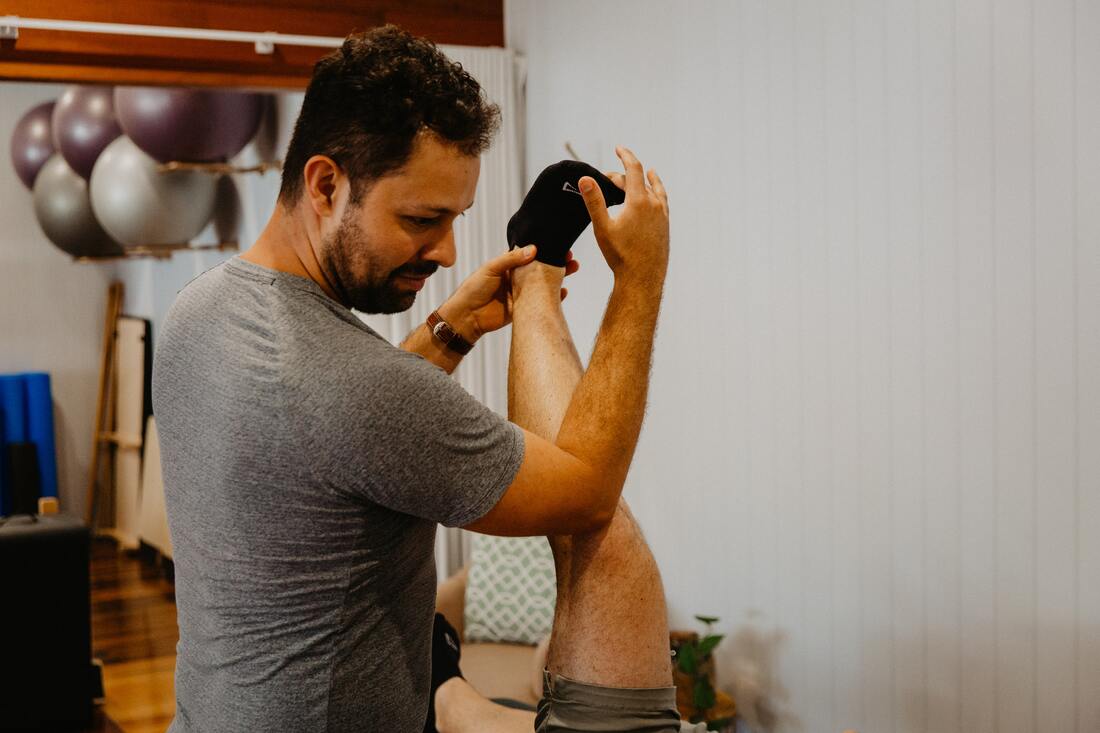Physiotherapy for Metatarsalgia.
What is Metatarsalgia?
Metatarsalgia, often referred to as ‘ball of foot pain’, is a condition characterised by pain and discomfort in the metatarsal region, the area just before the toes. It can affect one or multiple metatarsal heads and is commonly caused by excessive pressure or stress on these areas. Metatarsalgia can result from various factors, including:
How is Metatarsalgia Diagnosed?
Diagnosing metatarsalgia typically involves a thorough assessment by a healthcare professional, such as a physiotherapist or podiatrist. The diagnostic process may include:
How Can Physiotherapy Help Metatarsalgia?
Physiotherapy plays a pivotal role in managing metatarsalgia, offering a range of evidence-based treatments to alleviate pain and improve foot function. Your physiotherapy treatment plan may include:
How Can Clinical Pilates Help with Metatarsalgia Rehabilitation?
Here at Articulate we specialise in Clinical Exercise classes designed to rehabilitate and build strength in our patients. Patients with metatarsalgia can benefit from classes due to:
What Is the Prognosis for Metatarsalgia?
Most individuals experience significant pain relief and can return to their regular activities. However, the duration of recovery varies from person to person, depending on the severity of the condition and the effectiveness of the chosen treatments.
Metatarsalgia can be a painful condition, but with the right diagnosis and comprehensive physiotherapy you can find relief and regain your mobility. Our experienced physiotherapy team at our Tarragindi and Coorparoo clinics are here to provide personalised care and support on your journey to recovery. Don't let metatarsalgia hold you back and take the first step toward a pain-free future. Book online via the link below, call us on 07 3706 3407 or email [email protected].
Metatarsalgia, often referred to as ‘ball of foot pain’, is a condition characterised by pain and discomfort in the metatarsal region, the area just before the toes. It can affect one or multiple metatarsal heads and is commonly caused by excessive pressure or stress on these areas. Metatarsalgia can result from various factors, including:
- Foot Structure: High arches or flat feet can contribute to metatarsal stress.
- Improper Footwear: Wearing shoes that don't fit properly or lack proper cushioning can lead to metatarsal pain.
- Overuse: Frequent high-impact activities or sports can strain the metatarsals.
- Age: As we age, the fat pads in our feet may thin, leading to increased pressure on the metatarsals.
How is Metatarsalgia Diagnosed?
Diagnosing metatarsalgia typically involves a thorough assessment by a healthcare professional, such as a physiotherapist or podiatrist. The diagnostic process may include:
- Clinical Examination: Assessing your medical history and conducting a physical examination to identify areas of tenderness, swelling or deformity.
- Gait Analysis: Observing your walking or running pattern to determine if it contributes to metatarsal stress.
- Imaging: In some cases, X-rays or MRI scans may be ordered to rule out other underlying conditions like stress fractures or arthritis.
How Can Physiotherapy Help Metatarsalgia?
Physiotherapy plays a pivotal role in managing metatarsalgia, offering a range of evidence-based treatments to alleviate pain and improve foot function. Your physiotherapy treatment plan may include:
- Manual Therapy: Techniques such as joint mobilisation and soft tissue manipulation to reduce pain and improve joint mobility.
- Strengthening Exercises: Targeted exercises to strengthen the foot and ankle muscles, helping to stabilise the metatarsal region.
- Stretching: Stretching exercises to improve flexibility and reduce muscle tightness.
How Can Clinical Pilates Help with Metatarsalgia Rehabilitation?
Here at Articulate we specialise in Clinical Exercise classes designed to rehabilitate and build strength in our patients. Patients with metatarsalgia can benefit from classes due to:
- Improving Posture: Enhanced posture can alleviate stress on the metatarsals.
- Strengthening Foot Muscles: Specific Pilates exercises can target the muscles of the feet, reducing strain.
- Enhancing Balance: Better balance and coordination can prevent further metatarsal stress.
What Is the Prognosis for Metatarsalgia?
Most individuals experience significant pain relief and can return to their regular activities. However, the duration of recovery varies from person to person, depending on the severity of the condition and the effectiveness of the chosen treatments.
Metatarsalgia can be a painful condition, but with the right diagnosis and comprehensive physiotherapy you can find relief and regain your mobility. Our experienced physiotherapy team at our Tarragindi and Coorparoo clinics are here to provide personalised care and support on your journey to recovery. Don't let metatarsalgia hold you back and take the first step toward a pain-free future. Book online via the link below, call us on 07 3706 3407 or email [email protected].
If you are unsure about which appointment type is right for you, please don't hesitate to get in touch with our friendly reception staff by calling 07 3706 3407 or emailing [email protected].
